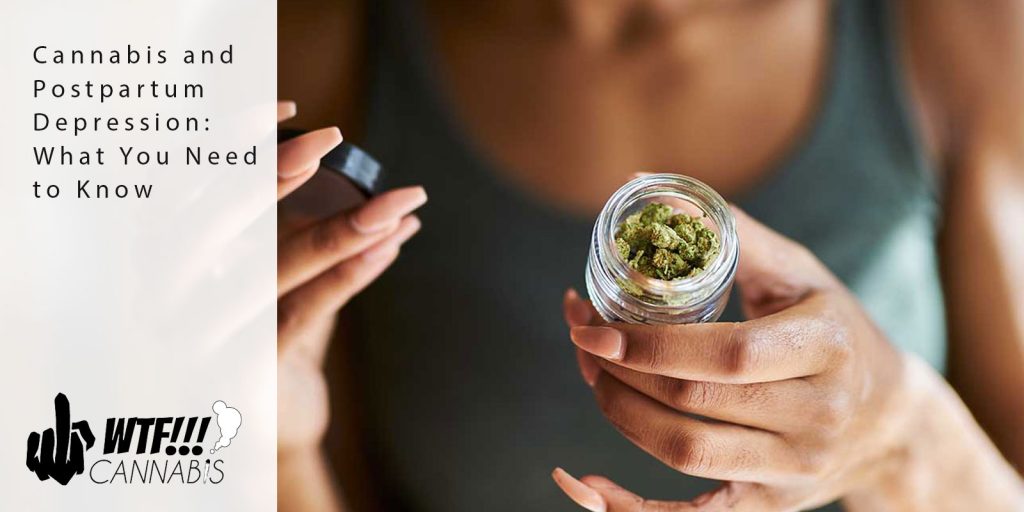Cannabis has been used for centuries to treat a variety of medical conditions. Postpartum depression is one of the most common mental health problems after childbirth, and it can be incredibly difficult to manage. There are a lot of myths about cannabis and postpartum depression, so it’s important to know what you need to know in order to get the help you need.
What is postpartum depression?
Postpartum depression is a condition that affects women after they give birth. Those who are diagnosed with postpartum depression often experience sadness and anxiety, which can be so severe they don’t feel like they’re not able to function daily. It’s estimated that over one in five women of childbearing age will suffer from postpartum depression at some point in their lives. You may have the symptoms of postpartum depression, but it’s important to know that you don’t need to suffer alone.
There are many ways you can get help for your mental health problems after giving birth:
- Get support from social media sites such as Facebook and Instagram
- Ask friends and family members for advice
- Post on social media asking for help
- Find a local group or community center where you can seek support
- Talk to a professional about your mental health issues
- Make an appointment with a doctor or therapist
- Seek counseling
- Get treatment through a licensed mental health professional
How can cannabis help postpartum depression?
Cannabis has been used for centuries to treat a variety of medical conditions. In recent years, research has been conducted into the use of cannabis as a treatment for postpartum depression (PPD). Studies have found that cannabis significantly reduces anxiety, insomnia and stress in women with PPD. Additionally, it has also been shown to be effective in treating severe symptoms of postpartum depression.
If you or someone close to you needs help with your mental health, it’s important to know how cannabis can help. While there is not one accurate way to use cannabis to treat PPD, several studies have found that it can significantly reduce clinical symptoms associated with PPD. The results are so impressive that researchers are finding ways to bring these findings back into mainstream medicine—often without raising eyebrows at all because they’re actually pretty simple.
What are the risks of using cannabis before and after childbirth?
The risks of using cannabis before and after childbirth are substantial.
First, cannabis use during pregnancy can lead to fetal abnormalities. A study in the journal Clinical Obstetrics & Gynecology found that pregnant women who used cannabis were more likely to have a baby with congenital abnormalities like anencephaly or spina bifida than women who did not smoke marijuana.
A similar study found that women who smoked pot while still pregnant had a higher risk of miscarriage than those who didn’t take it. Cannabis also has been linked to birth defects like cleft palate and anencephaly, which is one reason these conditions are so rare.
Second, there are significant physical risks from cannabis use as well. A high-risk group for cannabis abuse includes young adults between ages 18 and 25 (ages 21-25 years old) and older adults between 65 and 80 years old (ages 66 – 80 years old). This group is at risk for lung cancer, brain cancer, glaucoma, cancer and HIV/AIDS. While they don’t get enough sleep or exercise regularly, they may still be using plenty of alcohol or other substances “to take the edge off.”
What can you do to manage postpartum depression?
Postpartum depression is often misdiagnosed, and it often remains undiagnosed for years. It’s estimated that as many as one in five women experience postpartum depression, but some experts believe the actual number may be higher because of stigma surrounding mental health issues. As you might expect, postpartum depression can be incredibly difficult to deal with. If you’re experiencing symptoms of postpartum depression, it’s important that you get help from a qualified professional as soon as possible. It’s also important to understand the difference between self-diagnosis and a proper diagnosis by an expert.
Use cannabis products safely
Cannabis is a legal substance that can be used safely and effectively. The vast majority of cannabis users enjoy their experience with cannabis products, whether they are smoking marijuana or consuming edibles. Many people also find it helpful to smoke or ingest cannabis products with a vaporizer or a dab rig (a charger/converter that heats the plant material). As long as your THC and CBD levels don’t exceed the recommended limits, you should have no adverse effects from using any type of cannabis product.
Here are some things to be aware of when using cannabis for postpartum depression:
- Don’t use more than 1.5 grams (1/4oz) per day (about 100mg THC)
- Cannabis products are not addictive
- Cannabis can serve as an anxiolytic (anti-anxiety medication)
- Cannabis can also be used for mood enhancement without causing euphoria
- It’s okay to start slowly and build up to higher doses over time; it’s all about how you feel, not how much you take in
- Make sure you talk to your doctor before changing your dosage, especially if you’re pregnant or have a small baby in the house
Conclusion
Postpartum depression is a serious mental health condition that affects women in pregnancy, childbirth and during the postpartum period. It is a state of depression that may be treated with medications, counseling, and/or psychological therapies. The use of cannabis as a treatment for postpartum depression is becoming more and more widely accepted and there are many researchers who are currently studying the effects of cannabis on postpartum depression. Visit WTFCannabis.co online dispensary for all your cannabis needs.





